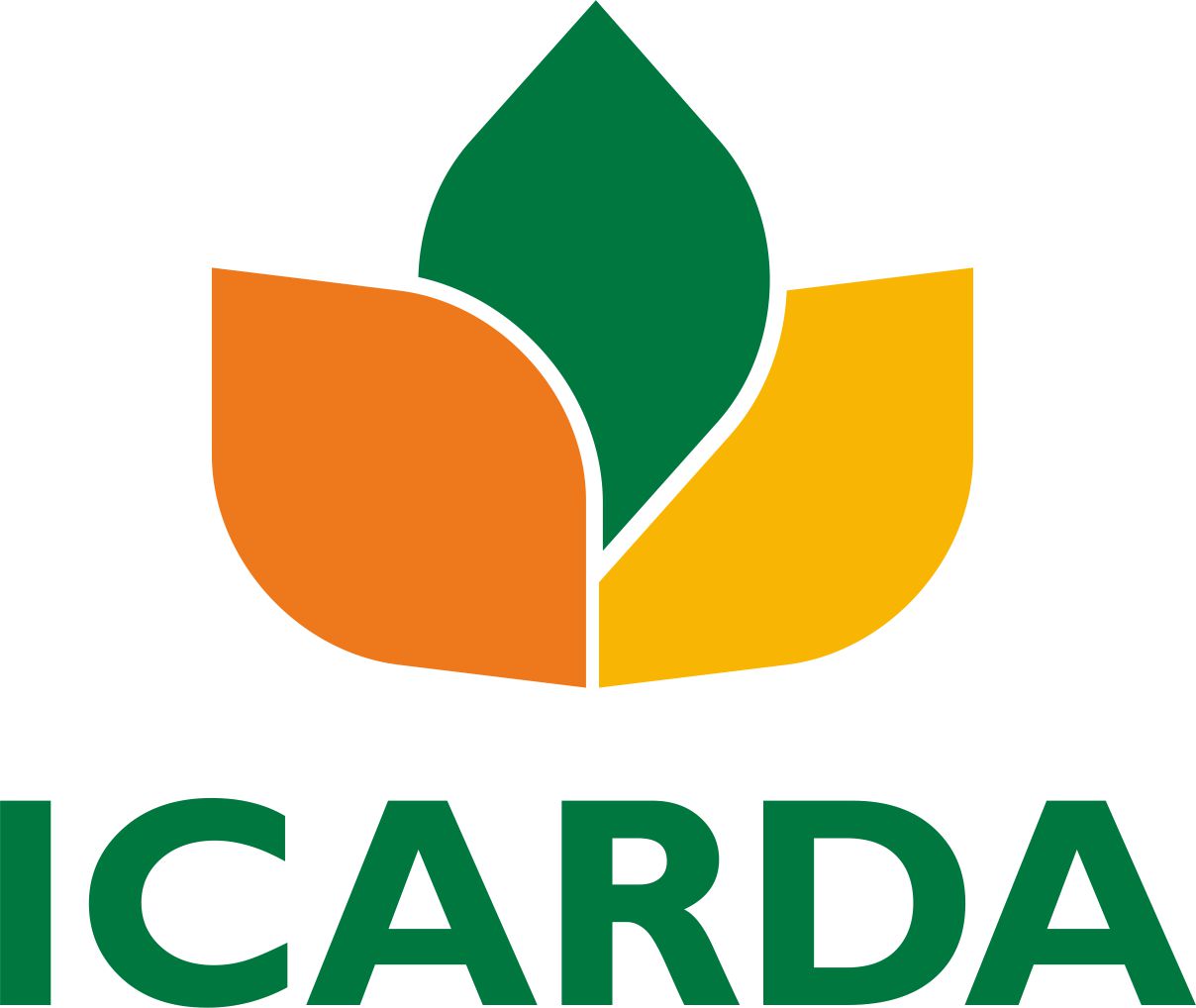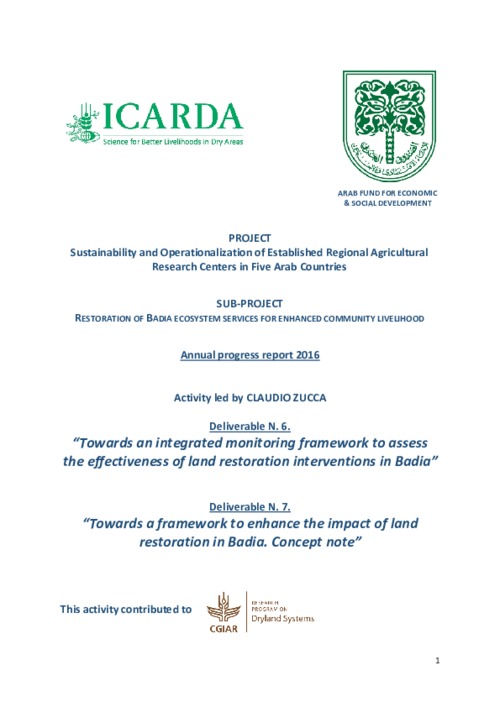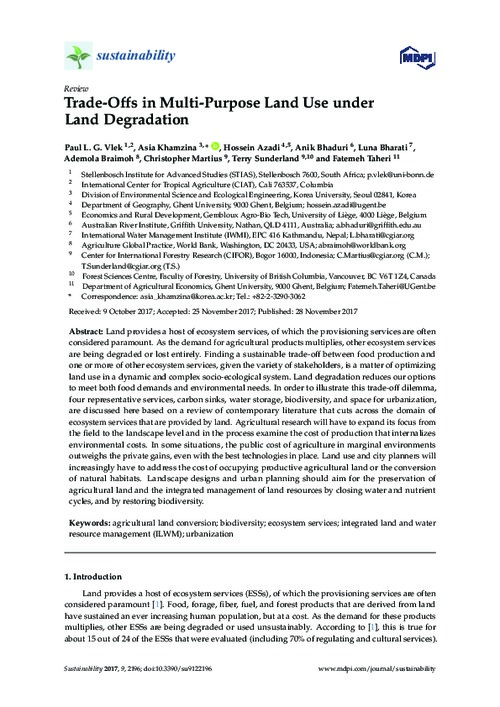Location
The International Center for Agricultural Research in the Dry Areas (ICARDA) was established in 1977. It is one of 15 such centers supported by the CGIAR. ICARDA’s founding mandate to promote agricultural development in the dry areas of developing countries remains highly relevant today.
ICARDA works with a tight focus on the problem-solving needs of resource-poor farmers, achieving this through the in-field delivery of its research outputs. Although global food production has increased by 20 per cent in the past decade, food insecurity and poverty remain widespread, while the natural resource base continues to decline.
International research centers such as ICARDA, which have helped drive previous improvements, continue to deliver new technologies to support sustainable growth in agriculture, and crucially, to work with a wide range of partners to accelerate the dissemination of these technologies.
ICARDA’s biggest strength is its staff – 600 highly skilled men and women from 32 countries. Our research and training activities cover crop improvement, water and land management, integrated crop-livestock-rangeland management, and climate change adaptation.
Other interventions include:
- Water harvesting - supplemental irrigation and water-saving irrigation techniques
- Conservation agriculture methods to reduce production costs and improve sustainability
- Diversification of production systems to high-value crops – horticulture, herbal and medicinal plants
- Integrated crop/rangeland/livestock production systems including non-traditional sources of livestock feed
- Empowerment of rural women – support and training for value-added products.
The ICARDA genebank holds over 135,000 accessions from over 110 countries: traditional varieties, improved germplasm, and a unique set of wild crop relatives. These include wheat, barley, oats and other cereals; food legumes such as faba bean, chickpea, lentil and field pea; forage crops, rangeland plants, and wild relatives of each of these species.
ICARDA’s research portfolio is part of a long-term strategic plan covering 2007 to 2016, focused on improving productivity, incomes and livelihoods among resource-poor households.
The strategy combines continuity with change – addressing current problems while expanding the focus to emerging challenges such as climate change and desertification.
We work closely with national agricultural research systems and government ministries. Over the years the Center has built a network of strong partnerships with national, regional and international institutions, universities, non-governmental organizations and ministries in the developing world and in industrialized countries with advanced research institutes.
THE ‘DRY AREAS’
Research and training activities cover the non-tropical dry areas globally, using West Asia, North Africa, Central Asia and the Caucasus as research platforms to develop, test, and scale-out new innovations and policy options.
Dry areas cover 41 per cent of the world’s land area and are home to one-third of the global population. About 16 per cent of this population lives in chronic poverty, particularly in marginal rainfed areas. The dry areas are challenged by rapid population growth, frequent droughts, high climatic variability, land degradation and desertification, and widespread poverty. The complex of relationships between these challenges has created a "Poverty Trap."
Members:
Resources
Displaying 76 - 80 of 431Formation sur la Gouvernance des Parcours Collectifs
Course program of a two days Training on Rangeland Governance designed for Tunisian Governmental Forest Officers
Global Land Outlook
Land is an essential building block of civilization yet its contribution to our quality of life is perceived and valued in starkly different and often incompatible ways. Conflicts about land use are intensifying in many countries. The world has reached a point where we must reconcile these differences and rethink the way in which we use and manage the land.
Towards an integrated monitoring framework to assess the effectiveness of land restoration interventions in Badia, and a framework to enhance the impact of land restoration.
This report was produced in the frame of the Project titled “Sustainability and Operationalization of Established Regional Agricultural Research Centers in Five Arab Countries”, funded by the Arab Fund for Economic & Social Development and implemented by ICARDA.
Trade-Offs in Multi-Purpose Land Use under Land Degradation
Land provides a host of ecosystem services, of which the provisioning services are often
considered paramount. As the demand for agricultural products multiplies, other ecosystem services
are being degraded or lost entirely. Finding a sustainable trade-off between food production and
one or more of other ecosystem services, given the variety of stakeholders, is a matter of optimizing
land use in a dynamic and complex socio-ecological system. Land degradation reduces our options
Overview of interface of the sustainable land management (SLM) tool
Under the Economics of Land degradation initiative (ELD), scientists from ICARDA are collaborating with developments to develop the GeOC tool. It is a new web-based GIS tool to define context specific options for sustainable land management required to achieve Land Degradation Neutrality (LDN).
This video illustrates the interface of the SLM tool of the GeOC tool.
To check the GeOC tool, please follow this link: http://geoc.mel.cgiar.org






